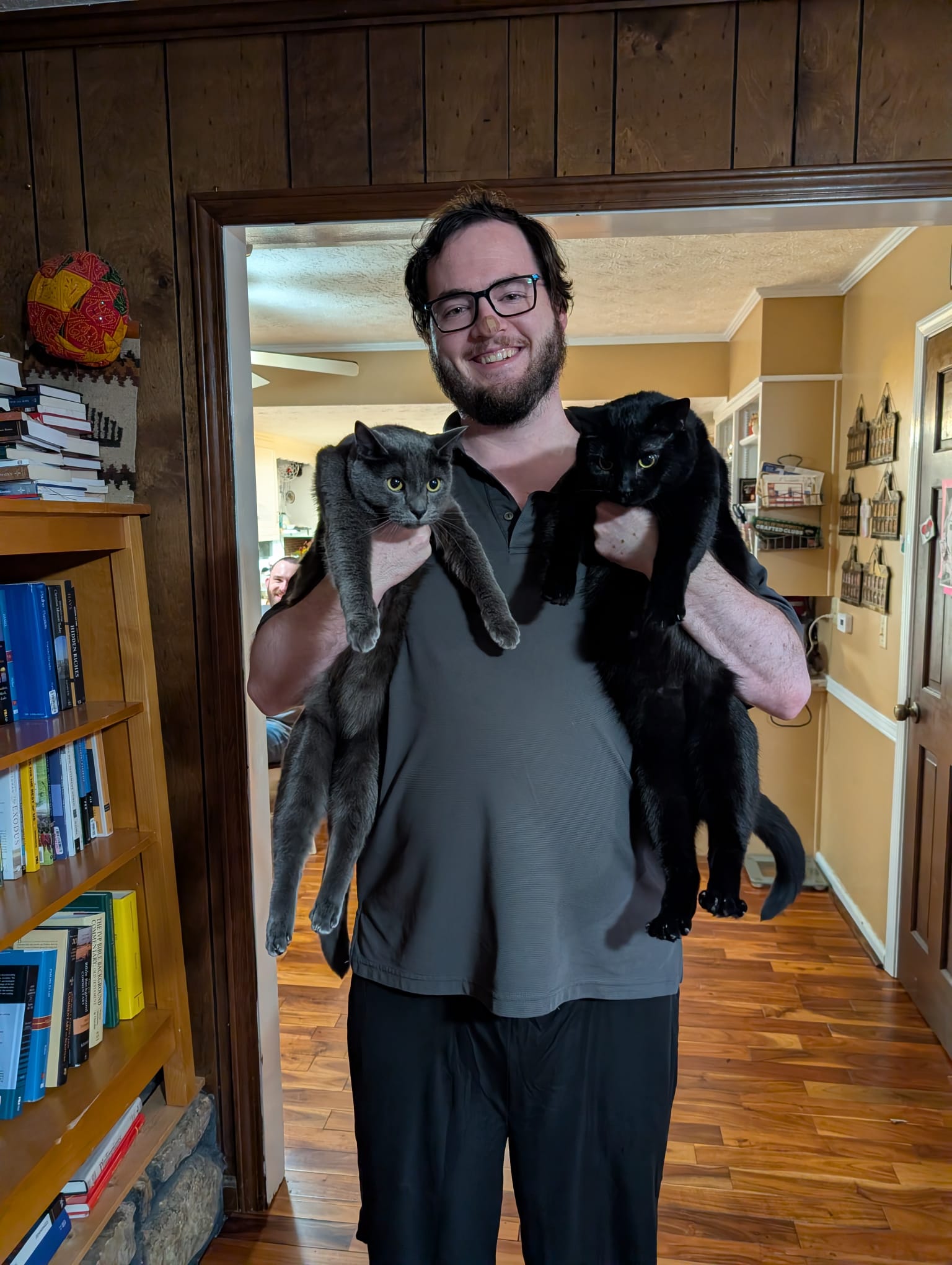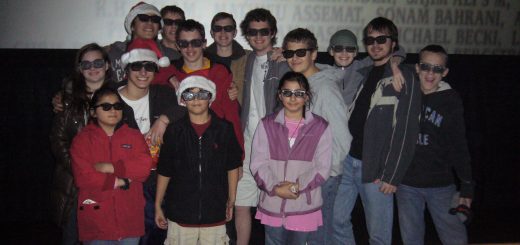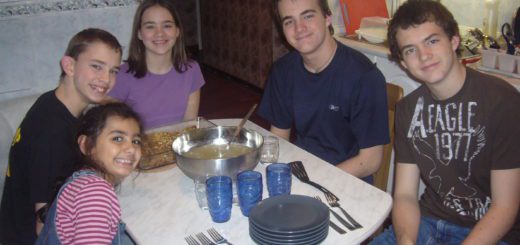A Community of Restoration and Liberation

“A Community of Restoration and Liberation” – October 19th, 2025
This is my right hand, I’ll raise it up high.
This is my left hand, I’ll touch the sky.
Right hand, left hand, roll them all around.
Left hand, right hand, pound, pound, pound.
Why did we start with a nursery rhyme today? Maybe because I enjoy singing them often to and with our gorgeous granddaughter. Also, because R is for right hand and R is for restoration! L is for left hand and L is for liberation! Restoration, liberation, roll them all around. Liberation, restoration, pound, pound, pound!
Luke is very intentional in his gospel to call forth and to nurture the community of Christ-followers who will both value and invest in (R) restoration and (L) liberation. We, the church, are called to the good and hard work of the (R) restoration of those who are trapped in any kind of sin or darkness. And we are called to the good and hard work of the (L) liberation of those who are trapped in any kind of poverty or oppression. Remember, for Luke, a Christian is a follower of Jesus who reaches out to others to call them to repentance and newness of life and who cares for the poor.
New Testament professor David DeSilva says that “the plight of the poor is a social sickness, and as long as our hearts remain hardened to others in need, with our blinders on and our focus elsewhere, we ourselves participate in that sickness.” God’s desire has always been to create a community of (R) restoration and (L) liberation. Jesus showed us what that looks like in the way he welcomed those trapped in sin, darkness, poverty, or oppression. So, how can we become the kind of community God desires? I put it to you that a community of (R) restoration and (L) liberation is comprised of individuals who are increasingly becoming restored and liberated. It is a community of persons who are becoming our true selves, as God intended. So, the first place to start is to discard our false selves.
In Thomas Merton’s New Seeds of Contemplation, he challenges our search for identity, meaning, and purpose with this profound truth: “The secret of our identity is hidden in the love and mercy of God.” God’s full restoration of our lives is something that happens in community. We need one another to help us to find courage to face the sins that weigh us down. We need one another to hear our vulnerable confession of those sins, so that we can be released from those sins, remain in freedom, and respond with love and gratitude. And we need one another to respond, not with condemnation, but with love and mercy, in order to show God’s heart and hope in finding freedom from a harmful way of life lived apart from God. As we do all of these things, deep, inner transformation happens.
Today’s passage is Luke’s third recorded parable featuring a rich man, this one unique to the Gospel of Luke. If we feel very uncomfortable hearing this parable, we’re in good company. This is exactly why Jesus told it and why Luke included it in his gospel.
Luke 16:19-31 – “There was a rich man who was dressed in purple and fine linen and who feasted sumptuously every day. And at his gate lay a poor man named Lazarus, covered with sores, who longed to satisfy his hunger with what fell from the rich man’s table; even the dogs would come and lick his sores. The poor man died and was carried away by the angels to be with Abraham. The rich man also died and was buried. In Hades, where he was being tormented, he looked up and saw Abraham far away with Lazarus by his side. He called out, ‘Father Abraham, have mercy on me, and send Lazarus to dip the tip of his finger in water and cool my tongue; for I am in agony in these flames.’ But Abraham said, ‘Child, remember that during your lifetime you received your good things, and Lazarus in like manner evil things; but now he is comforted here, and you are in agony. Besides all this, between you and us a great chasm has been fixed, so that those who might want to pass from here to you cannot do so, and no one can cross from there to us.’ He said, ‘Then, father, I beg you to send him to my father’s house—for I have five brothers—that he may warn them, so that they will not also come into this place of torment.’ Abraham replied, ‘They have Moses and the prophets; they should listen to them.’ He said, ‘No, father Abraham; but if someone goes to them from the dead, they will repent.’ He said to him, ‘If they do not listen to Moses and the prophets, neither will they be convinced even if someone rises from the dead.’”
Location, location, location
Just as realtors emphasize location, location, location, Luke emphasizes the location where Lazarus lay each day: at the rich man’s gate. God names neglect of the needy in the gate as a particular evil in Amos 5:12-15a – “I know how many are your transgressions, and how great are your sins— you who afflict the righteous, who take a bribe, and push aside the needy in the gate. Therefore the prudent will keep silent in such a time; for it is an evil time. Seek good and not evil, that you may live; and so the Lord, the God of hosts, will be with you, just as you have said. Hate evil and love good, and establish justice in the gate.” In Jesus’ day, gates spoke of protection, access, authority, transition, and gathering. That the poor man lay at the rich man’s gate meant that the poor man was left without sustenance or shelter, without medical care or legal advocacy, without voice or strength, and without protection or community support. He was neglected, stepped over, pushed aside, left out in the cold.
Rich and Poor
Luke highlights reversal of fortune in the contrast between the two main characters. It’s impossible to miss the stark contrast between the lavish lifestyle and overt overeating of the rich man and the scarcely surviving poor man whose life was hanging by a thread in his starvation and sickness. Let’s avoid the unfortunately common misinterpretation of Jesus’ parable, that it’s better to let the poor stay poor since they’ll be better off in the next life! Careless rich people across the centuries have claimed this lame excuse for not caring for the poor: We don’t need to help the poor here on earth because they will be comfortable and comforted in heaven. No, just no!
Who’s Who
TV shows that will never be popular: Lifestyles of the Destitute and Insignificant, Dirt Poor, Who Wants to Be a Nillionaire? Even though in real life, a la Lifestyles of the Rich and Famous, everyone would have known the rich man’s name, that is not the name in Jesus’ who’s who list.
The rich man, unnamed, is dressed in purple and fine linen. In ancient Rome, “Tyrian purple” dye came from the secretions of Mediterranean sea snails. Laws limited who had the right to wear this costly and rare dye: the emperor, senators, high-ranking officials. The original hearers understood the inclusion of this detail: The rich man had position and power, both gained with the approval of the Roman authorities. N. T. Wright comments, “We all know Lazarus. He is our neighbor. Some of us may be rich, well dressed, and well fed, and walk past him without even noticing; others of us may not be so rich, or so finely clothed and fed, but compared with Lazarus we’re well off. He would be glad to change places with us, and we would be horrified to share his life, even for a day.”
It is significant that Jesus names the poor person in this parable. Naming him gives him dignity and value. Naming him humanizes him. It’s easy for us to think of impoverished persons as “the poor.” One of the things I like about Kiva microloans is the opportunity to share resources with individuals. Each entrepreneur receiving a microloan is a bearer of God’s image whose name I am honored to learn. In life, the rich man’s name was known far and wide; the poor man was simply known as that guy who lies at the rich man’s gate and is licked by dogs. Jesus aptly names this guy-who-lies-at-the-rich-man’s-gate Lazarus, which means “God helps.” Jesus notes that Lazarus longs to satisfy his hunger with what falls from the rich man’s table. New Testament Professor Mitzi J. Smith notes sadly that “a society desensitized to suffering and hunger would rather pets than hungry human beings eat the leftovers (not that pets shouldn’t eat either). Only the dogs show mercy on Lazarus, licking his sore-covered body.”
A foretaste of the age to come
In the ancient world, it was very common to tell stories of how wealth and poverty would be reversed in the next life. In these kinds of widely believed and repeated stories, when someone in the next life asked to send a message back to people who were still living on earth, their request would be granted. But Jesus changes the usual narrative. Twentieth century German theologian Helmut Thielicke says, “So there will be no one appearing from the dead, no voice from heaven will sound, nor will there be any miracle in the clouds. None of this will come to you – you who are one of the rich man’s five brothers. We have only the Word, the Word made flesh and crucified, that namelessly quiet Word which came to us in one who was as poor and despised as his brother Lazarus. For he really wanted to be his brother.”
Jesus’ version of this reversal-in-the-next-life-story jolts us to face some hard questions. There’s a verse near the end of the great love chapter, 1 Corinthians 13, that describes our current reality – “For now we see in a mirror, dimly, but then we will see face to face. Now I know only in part; then I will know fully, even as I have been fully known.” I think it is easy to romanticize this verse, as though we can be okay and just kick back while we see dimly and know partially. For sure, we cannot see face to face yet. We cannot know fully yet. But that doesn’t mean we just passively accept our dim vision and partial knowledge. There are plenty of instructions and examples throughout Scripture to seek to see God, to see others, to know God, and to know ourselves and others. There are things we can do to see better and to understand better! Jesus is pointing out the rich man’s attempts to excuse his and his family’s lack of vision and understanding.
Historical theologian Justo González comments more bluntly, “Jesus is telling his hearers, who are ‘lovers of money,’ that they do not need special signs or wonders to know what they are to do … There is no miracle capable of leading to faith and obedience when one has vested interests and values that one places above obedience to God, such as ‘the love of money’ of the Pharisees whom Jesus is addressing … Love of money [perverts] one’s vision so that even the greatest of miracles can be explained away … The main obstacle to faith is not lack of proof; it is an excess of other interests and investments – of time, money, dreams, and so on.”
We know from Luke 15:2 that Jesus “welcomes sinners and eats with them.’” Jesus’ parable is a clear warning to the Pharisees who were acting exactly like the rich man acted toward Lazarus. The Pharisees failed to accept, include, welcome, or care for the people Jesus was welcoming – those trapped in sin, darkness, poverty, or oppression. Jesus’ words continue to warn wealthy people today to not ignore the desperately poor, but rather to proclaim and demonstrate the good news of the kingdom of God. Jesus spoke often of the kingdom of God throughout the gospel of Luke: the kingdom of God is good news (Luke 4:43), the kingdom of God is for the poor (Luke 6:20), the kingdom of God has come (Luke 11:20), the kingdom of God is among you (Luke 17:21), and the kingdom of God is near (Luke 21:31). As N. T. Wright puts it, “the age to come must be anticipated in the present.” Luke would later remind us that it is “universal” in Acts 3:21 – “the time of universal restoration that God announced long ago through his holy prophets.” The age to come is the age when all wrongs will be put right. It is the age of (R) restoration and (L) liberation, when ancient, long-awaited prophecies like Amos 5:24 will finally be fulfilled – “let justice roll down like waters, and righteousness like an ever-flowing stream.”
By his life, ministry, death, and resurrection, Jesus made the way for God’s kingdom to come here and now as it is in heaven. Amos Yong describes what happened in the early church after the outpouring of the Spirit on all flesh as “the establishment of an expanded family of brothers and sisters who would love one another as the Father loved the Son and the Son the Father. Those who were of means provided for others, expecting nothing in return. The mutuality and sharing reconciled the rich and the poor and brought together those who had been divided by language, culture, ethnicity, and class. Those who were called Christians – followers of the Messiah – served one another and ate together without regard to the protocols of the world. Such was the imitation of the life of Jesus, the works of the Holy Spirit, and the way of the kingdom … Those who have caught a vision of the kingdom … are able to see others beyond themselves. They are not self-consumed but have learned the spirit of the great commandments, which is to love God and neighbor fully.”
We are family
The rich man in Jesus’ parable calls out to Abraham as his father three times. Jacobson & Chan’s Introducing the Old Testament, introduces Abraham and Sarah in this way: “Faced with a creation that is broken, in which the families of the earth are broken and scattered, the Lord chooses Abraham and Sarah to be a means of blessing to the broken creation.” We read of God’s promises to them in Genesis 12:2-3 – “I will make of you a great nation, and I will bless you, and make your name great, so that you will be a blessing. I will bless those who bless you, and the one who curses you I will curse; and in you all the families of the earth shall be blessed.” We learn in Genesis 18 that Abraham was a rich man. He was also renowned for his generous hospitality, clearly seen in how he welcomed and received God in the form of three men in that same chapter. Both the rich man and the poor man are children of the same father. One child does not emulate the generosity of his father. That same child refuses to accept the other child as his brother. In life, the rich man stepped over Lazarus to come and go through his gate each day. In death, the rich man saw his brother Lazarus only as a servant whom he could dispatch as a messenger to the only people he could accept as family.
Getting to know real poor people and real rich people diminishes the temptation to romanticize the “goodness” or “badness” of either. As Soviet and Russian author and dissident Aleksandr Solzhenitsyn famously said in his masterpiece The Gulag Archipelago, “If only it were all so simple! If only there were evil people somewhere insidiously committing evil deeds, and it were necessary only to separate them from the rest of us and destroy them. But the line dividing good and evil cuts through the heart of every human being. And who is willing to destroy a piece of his own heart?” Let us remember that each person is capable of great good and great evil. Let us avoid the trap of simplistically and rather sadistically thinking that those who are poorer will one day rejoice that those who are richer will be eternally punished in the afterlife. That is not at all what Jesus is saying in this parable! Jesus couldn’t have been clearer that we are all children with the same heavenly Father! How could one sibling rejoice in the damnation of another? How could the ones in the eternal embrace enjoy the heavenly banquet while others are in perpetual torment? How would our attitudes, words, and actions change if we fully accepted that we, all humans, are in the same family!
We can all do something
The main point of Luke’s inclusion of Jesus’ parable is to call forth and nurture a community of (R) restoration and (L) liberation. God certainly does not create poverty or starvation or disease. First Timothy 4:4 assures us that “everything created by God is good.” Poor people are not evil, of course, but poverty and starvation and disease are evils that can be alleviated. Jesus calls us to join him in this good work. We can’t fix everything, but we can all do something. In countless cases, what humans create, humans can fix, if we so desire. Here are a couple of examples:
In the 1960s, about 37% of the world’s population was undernourished. The world has made much progress in reducing global hunger in recent decades, but we are still far away from ending hunger. Tragically, almost 10% of the global population still does not get enough food to eat. One of the most important tools for combatting worldwide food crises has been the development of high-yield crops like hybrid rice. When grown under the same conditions as comparable purebred rice varieties, hybrid rice can produce up to 30% more yield. It has been literally life-saving in many places across Asia and Africa where rice is an important staple.
Scientific processes have led to the discovery and development of astounding preventives and cures for diseases! One of this year’s Nobel laureates, Mary E. Brunkow, was jointly awarded the Nobel Prize in Physiology or Medicine. Dr. Brunkow and two fellow immunologists are known for a finding that became foundational for modern regulatory T cell biology. Just one practical application of their research is the development of therapies to relieve the suffering of people with osteoporosis, a condition affecting 18.3% of the global population.
About 30 years ago, the Holy Spirit strongly convicted me as I read William James’s Principles of Psychology. I did not expect to be confronted so strongly by a book with such an academic-sounding title. It was life-changing: “No matter how full a reservoir of maxims one may possess, and no matter how good one’s sentiments may be, if one has not taken advantage of every concrete opportunity to act, one’s character may remain entirely unaffected for the better. With mere good intentions, hell is proverbially paved . . . The weeping of a Russian lady over the fictitious personages in a play, while her coachman is freezing to death on his seat outside, is the sort of thing that everywhere happens on a less glaring scale . . . One becomes filled with emotions which habitually pass without prompting to any deed, and so the inertly sentimental condition is kept up. The remedy would be, never to suffer one’s self to have an emotion at a concert, without expressing it afterward in some active way. Let the expression be the least thing in the world . . . but let it not fail to take place.”
When our family lived in Russia, we encountered and often passed many poor people on our regular walks around our city. Some were veterans of wars, lacking both limbs and assistive prostheses. Many were elderly female pensioners who could only afford to eat potatoes or pasta. The vast majority were battling long term drug or alcohol addiction. How could we just walk on past these precious bearers of God’s image on our way to church to worship their creator and savior as well as ours? It was depressing and heartbreaking. We tried to put William James’s wise advice into practice by habitually preparing and carrying packages of nutritious food to distribute to as many people as we could. We always ran out.
There are parts of our city today where we may feel uncomfortable walking or even driving because we don’t know what to do when we encounter sin, darkness, poverty, or oppression face-to-face. How can we better become a community of (R) restoration and (L) liberation here at Liberty Vineyard Church? We don’t know when we will encounter sin, darkness, poverty, or oppression, but we know that we will encounter precious bearers of God’s image who are struggling with these things. So, we can be prepared! We can pray and we can share what we have received, whether time, talent, or treasures. One of the many outreaches we have done multiple times is preparing “Blessing Bags.” We can introduce ourselves and learn people’s names. We can get involved in advocating for justice through legal means.
I find it very helpful to understand Jesus’ parable as an invitation. Jesus invites us to consider that the choices we make, both personally and in our generation, open up different possibilities for both ourselves and others. Jesus invites us to participate with God in the most important things – justice and the love of God. Jesus invites us to see and care for those who are trapped in sin, darkness, poverty, or oppression. There are so many needs, and it is understandable that we feel overwhelmed. Jesus invites us to become a community of (R) restoration and (L) liberation. We can’t do everything, but we can all do something. Let’s keep going doing small things with great love, reaching neighbors and nations, for the greater glory of God! Come, Holy Spirit!




